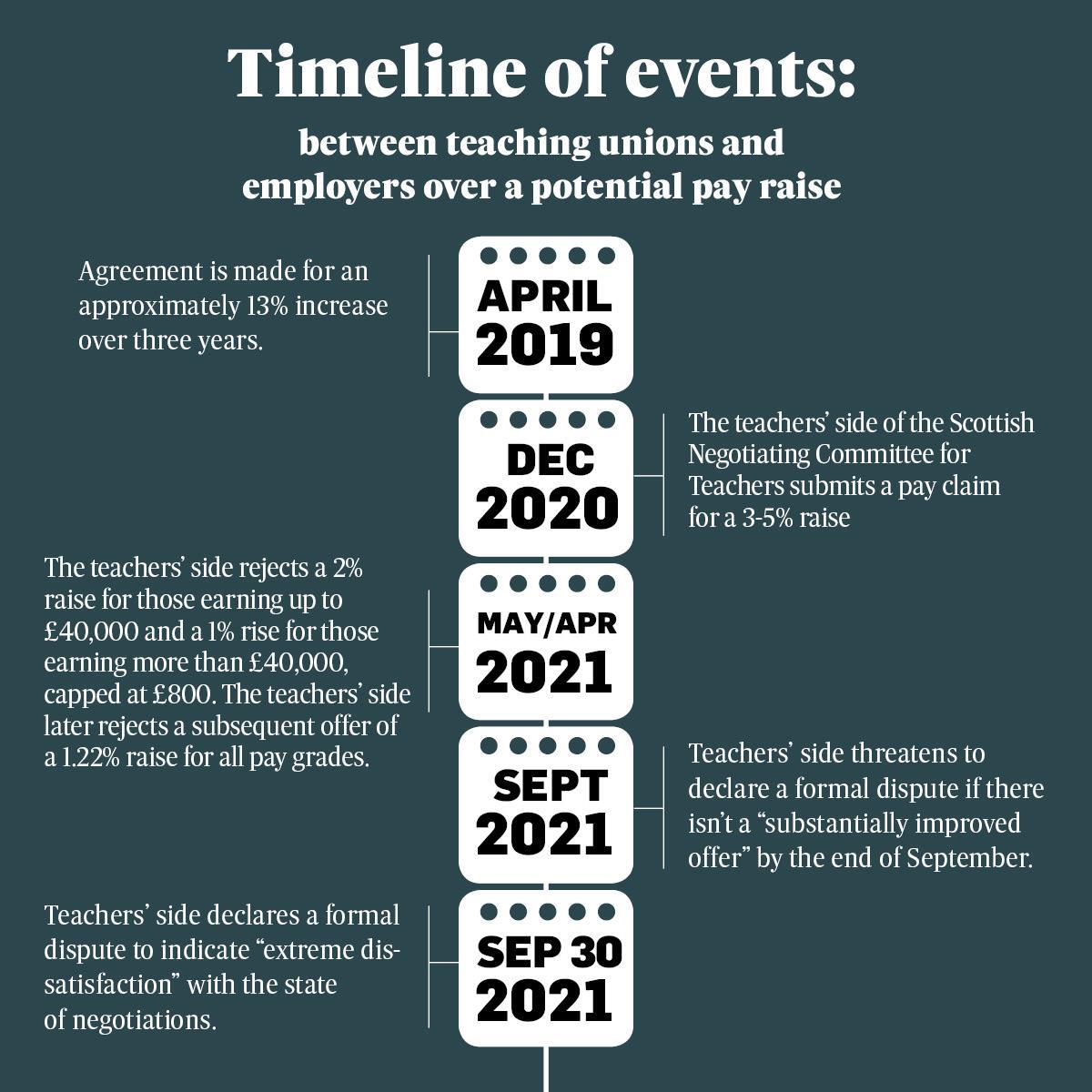Teaching unions have this week announced a formal dispute over what they say is an “unacceptable” pay offer.
In what has been a tumultuous 18 months, it seems this salary row is escalating.
After submitting a pay claim in December of last year, teachers’ representatives say they have met with repeated setbacks.
Local EIS officials said that this week’s formal dispute is a declaration of their “extreme dissatisfaction” with the employers’ offer.
But what does this strong language mean for pupils – and their parents? Are we close to a strike? What did teaching unions want in the first place, how did we arrive at this point, and what comes next?
The build-up to the teacher salary dispute
The Scottish Negotiating Committee for Teachers consists of members of teaching organisations, Local Authorities, and the Scottish Government. The SNCT’s most recent Scotland teacher salary agreement was reached in April 2019.
The deal awarded a total increase of 13% over the course of three years. In December 2020, the teachers’ side of the SNCT submitted another pay claim for an increase of between 3-5%.
The request was, in part, a response to the increased demands of the Covid-19 pandemic. The unions are claiming a rate they believe will “support and reward for teachers as frontline and key workers.”
But, as our timeline of the action shows, there has been little substantial progress toward an agreement.
Along the way, teaching unions have taken issue with offers that differentiate between teachers at separate pay grades or that they say don’t account for inflation.
Teachers’ side: ‘extreme disappointment’
After lodging a formal dispute over the current Scotland teacher salary offer, EIS salaries convener Des Morris said that teachers should be valued alongside other frontline workers.
…[W]e would wish to remain around the table to discuss any such suitable increased offer.”
-EIS Highland LA Secretary Alistair Bell
“The level of public and political praise for teachers has been extremely high during this time, with frequent statements highlighting the value of teachers to the country and the essential role that education must play in supporting the national recovery from the Covid pandemic.”
Throughout the negotiation process, EIS representatives have claimed that the offers don’t reflect public support for teachers.
So will there be a strike?
There is no short answer, except maybe “not any time soon”. General strike actions among teachers have been rare in recent decades. The 2019 pay agreement came at a turning point in negotiations.
In March 2019, union leaders agreed to a proposal and suspended a planned strike ballot less than a month before the strike was to take place. Had the strike action taken place, it would have been the first in Scotland since the 1980s.
Highland EIS Local Association Secretary Alistair Bell said that the current “dispute” declaration opens the door to various options.
Although a strike is one possibility, it’s currently not in the works.
Actions could also vary regionally, he said, but the top priority is reaching an acceptable agreement.
“Declaring a dispute here is really the first step and just demonstrates our extreme dissatisfaction with the position.
“It demonstrates our willingness to prepare for next steps towards industrial action, but also that we would wish to remain around the table to discuss any such suitable increased offer.”
More from the Schools & Family team
Parent groups demand ‘immediate action’ to protect schoolchildren from Covid
Union opposes plan to bring back school inspections during ‘fragile period’
‘Young people still need the same things’: Davie Hay reflects on 40 years teaching at Nairn Academy

